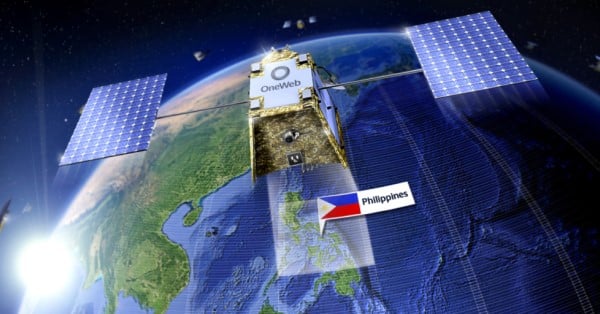Manila, Philippines, 3 May 2023 – OneWeb, the low Earth orbit (LEO) satellite communications company, and NOW Corporation, a publicly listed firm in the Philippine Stock Exchange with investments in telecom, media, and technology, announce they have signed a Memorandum of Understanding (MoU) to bring high-speed, low-latency broadband connectivity to the Philippines.
The partnership combines the innovative satellite technology of OneWeb with NOW Corp’s existing broadband service and strong local presence especially in the enterprise market. OneWeb’s LEO satellites will provide seamless connectivity, enabling NOW to offer a wide range of enhanced broadband services to sectors including government, aviation, maritime, military, energy, healthcare and banking. With an eye toward serving such critical infrastructure, NOW will work closely with OneWeb in order to deliver stable, high-speed, low latency broadband connectivity with committed information rates (CIR).
Under this MoU, OneWeb will bring to enterprise, government, and other customers in the Philippines the connectivity solutions it offers in a swiftly growing number of markets. With its constellation of LEO satellites now fully built out, OneWeb is set to complete its rollout of global coverage this year. By tapping into the power of this global network, NOW will be able to extend services into hard-to-reach areas and enhance the speed, latency, and resiliency of its existing offerings.
Neil Masterson, CEO of OneWeb, commented: “This is an exciting partnership that is set to bring transformational connectivity to people, businesses, and government bodies throughout the Philippines. We are thrilled to count NOW as a partner and ally in our push to bring true global connectivity. NOW has done tremendous work toward getting the people of the Philippines online, and we’re honored to have the opportunity to enhance and build upon this work with an LEO connectivity solution that is fast, secure and reliable across vast distances, seas and rugged terrain.
” Mel Velarde, Chairman of NOW Corporation, said, “The integration of multi-orbit satellites provides a surprisingly compelling customer experience in both fixed and mobile applications. Our alliance with OneWeb and with the support of the United States government to the NOW Group will provide a clean, secure, and SLA-based connectivity to critical infrastructures such as banks, hospitals, schools, mining sites, power plants, government, and all other entities under the country’s digital economy. NOW Telecom is perhaps the only franchised Philippine telecom company that includes a mandate to operate in the outer space, making us able to cover the whole archipelago.”
Source: Press releases Read More






























